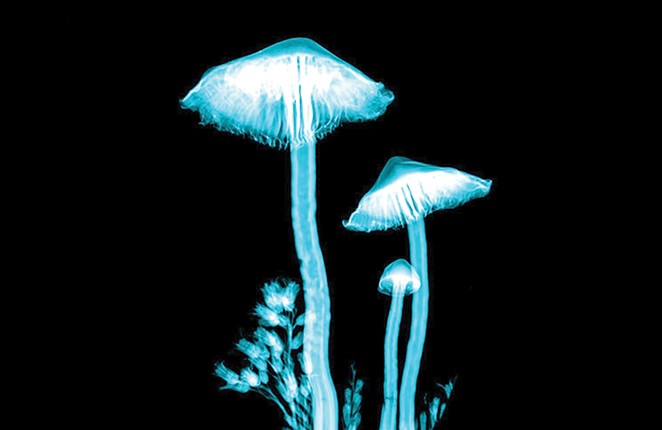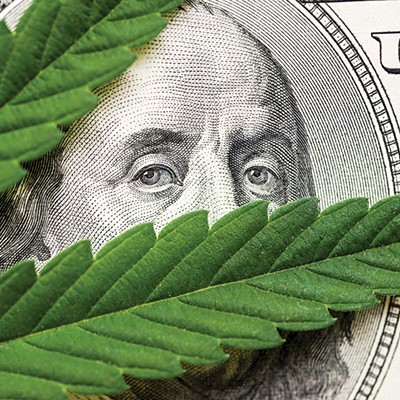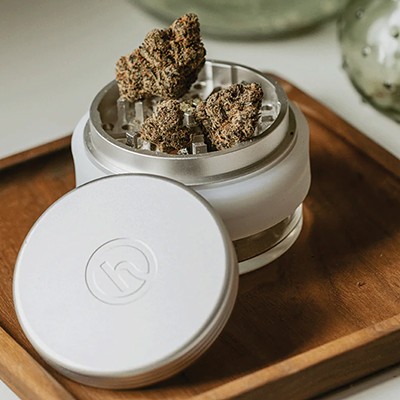This week, the column takes a break from covering cannabis to look at psilocybin, aka "magic mushrooms," Oregon's other legalized intoxicant and plant medicine. (Yes, it's technically a fungus.)
There are similarities between the two: Both have a storied, 1,000-year-plus history of use for both recreation and healing, remain in many circles demonized as dangerous drugs that will lead to ruin, and although legal in Oregon, under the Federal Controlled Substances Act, both are Schedule 1 substances, making them federally illegal.
When Ballot Measure 109 won passage in November 2020, it called for the Oregon Health Authority, which oversees the Oregon Medical Marijuana Program, to "license and regulate the manufacturing, transportation, delivery, sale, and purchase of psilocybin products and the provision of psilocybin services."
The measure won favor with voters who agreed with the belief that psilocybin can be useful in treating a wide range of psychological issues such as PTSD, anxiety, and depression. In 2016, the plant medicine writer Michael Pollan explained that the genesis of his book on using LSD and psilocybin, "How To Change Your Mind", came from interviewing numerous cancer patients who, after one guided psilocybin session, "had such a powerful mystical experience that their fear of death either faded or vanished altogether."
This year, the OHA expects the first Psilocybin Service Center to begin seeing people, aka clients. Clients are anyone 21 or older, who may access psilocybin which has been grown, tested, processed and transported by Oregon licensed entities, on their own, without a referral from a medical professional.
Clients will meet with a facilitator at a center, then take a measured dose of psilocybin with the guidance of a facilitator. The amount consumed is up to the client, as the measure didn't specify exact amounts. As the Lund Report writes: "...(clients taking) a dose larger than 35 milligrams... to 50 milligrams will need to stay for at least six hours. These sessions would also require at least one facilitator for every two clients present. ...a dose between 2.5 milligrams and less than 5 milligrams requires an hour-long session. Only one facilitator is required for a session with 25 clients consuming 5 milligrams or less. ...a "sub perceptual" dose of less than 2.5 milligrams requires a half-hour session under the supervision of a facilitator."
Clients can't drive or bike themselves afterward, and there are no "to-go" bags — all mushrooms must be consumed on site. Mushrooms purchased at dispensaries aren't happening (yet).
As this is a first-of-its-kind, U.S-based program, challenges and changes are inherent and inevitable. Some other psilocybin "firsts" occurred this month, good and bad.
March saw the first class of over 100 facilitator trainees graduate InnerTrek, one of 21 training centers in Oregon. Trainees must now pass the state's licensing exam, placing them, as InnerTrek says, "on track to become the world's first government-licensed psychedelic therapists."
March also saw the sudden bankruptcy related closure of the Oregon training center Synthesis Institute, a Dutch-based company which left an estimated 200+ trainees in limbo. Another training center is hoping to take over the completion of the classes, which are not cheap.
Affordability is the serious concern amongst psilocybin advocates. No Psilocybin Service Centers have yet opened, so what clients will be asked to pay remains unknown, but reports show one session could start at $1,500. (Synthesis planned to offer a five-day program for nearly $6,500, which is obscene.)
The costs for becoming a facilitator, as well as obtaining and maintaining a license, are also high.
Synthesis charged a minimum of nearly $10,000 for a 13-month program of online and in-person classes, and InnerTrek charges a minimum of $7,900 for a six-month program. While some partial scholarships are available, that's a tremendous amount of money. The fee to take the license exam is $150, and facilitator's licenses are renewed annually at $2,000. Centers will pay $500 for a license application, then $10,000 per year after that.
Meanwhile, psilocybin edibles and sacks of fungi are freely sold by "entrepreneurial shroom enthusiasts." Such costs reduce access, and support an unlicensed marketplace. A low-cost medical psilocybin program should come next.





















